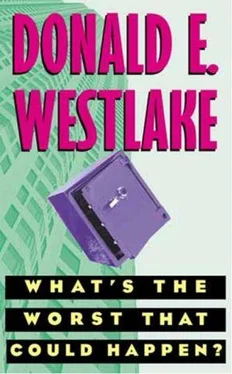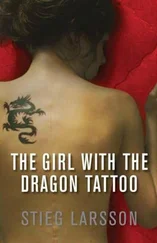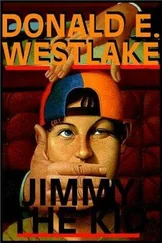Jethro Tulley
“G. G. Goodwin,” Dortmunder said.
“I remember him,” May said. “At least, I think I do. He’s the one smelled like horse manure, I think. He was out at the track all the time.”
“You weren’t all that close to him, I guess.”
“I didn’t want to be, the way I remember it.”
“Your sister was closer to him.”
“June always sucked up the grown-ups,” May said. “She didn’t care what they smelled like.”
“Out to the track a lot, you say,” Dortmunder said.
“He was a horseplayer, that’s right.”
“And yet, he didn’t die broke. I notice your sister sent you the stuff with the sentimental value.”
“Uncle Gid wouldn’t have left much,” May said. “He was also married a lot of times. Women he met out at the track.”
“I’m surprised he had anything at all, then. What’s this ring look like?”
“How do I know?” Shrugging, May said, “It’s still in the box, isn’t it?”
“You mean, you don’t remember it?” Dortmunder was baffled. “I figured, sentimental and all, there was some connection between you and this ring.”
“Not that I know of,” May said. “Well, let’s have a look.”
The box wasn’t wrapped or sealed or anything; it was just a black box with a spring inside to keep the lid shut. May opened it, and they both looked in at a cloud of white cotton. She shook the box, and something in it thumped, so she turned it upside down over the table and the cotton fell out, and so, separately, did the something that thumped.
A ring, as advertised. It was gold-looking but it wasn’t gold, so it was probably brass at best. The top was a flat five-sided shape, like the shield around Superman’s big S on his uniform chest. Instead of an S, though, the ring displayed on its flat surface three thin lines of tiny stones—chips, really—that were diamondy looking, but were not diamonds, so they were probably glass. At best. The top line was discontinuous, with a blank section in the middle, while the other two were complete. It looked like:

Dortmunder said, “Which sentiment exactly does this represent?”
“No idea,” May said. She slipped the ring onto the middle finger of her left hand, then held that hand with fingers downward over her right palm, and the ring fell into the palm. “I wonder if he found it in a cereal box.”
“That was the lucky part,” Dortmunder suggested.
“The whole purpose of sending me this,” May said, as she slipped the ring onto the middle finger of her right hand, “is that June wants me to call her .”
“Are you going to?”
May held her right hand over her left palm, fingers downward. The ring fell into the palm. “Not a chance,” she said. “In fact, I’m not even going to answer the phone for a while.” Turning the ring this way and that in her fingers, she said, “But it isn’t a bad-looking thing, really.”
“No, it’s kind of restrained,” Dortmunder agreed. “You don’t expect that in a horseplayer.”
“Well, it doesn’t fit me ,” she said, and extended a hand toward Dortmunder, the ring lying in the palm. “Try it.”
“It’s yours,” Dortmunder objected. “Your uncle G.G. didn’t send it to me .”
“But it doesn’t fit. And, John, you know . . . Umm. How do I phrase this?”
“Beats me,” Dortmunder said. He had the feeling he wasn’t going to like what came next no matter how she phrased it.
“You could use a little luck,” May said.
“Come on, May.”
“Skill you’ve got,” she hastened to assure him. “Adaptability you’ve got, professionalism you’ve got, good competent partners you’ve got. Luck you could use a little. Try it on.”
So he tried it on, sliding it onto the ring finger of his right hand—a ring of any kind on the ring finger of his left hand could only remind him of his unfortunate marriage (and subsequent fortunate divorce) many years ago to and from a nightclub entertainer in San Diego who operated under the professional name of Honeybun Bazoom and who had not been at all like May—and it fit.
The ring fit perfectly. Dortmunder let his right arm hang at his side, fingers loose and dangling downward as he flapped his hand a little, but the ring stayed right where he’d put it, snug but not tight. It felt kind of good, in fact. “Huh,” he said.
“So there you are,” she said. “Your lucky ring.”
“Thanks, May,” Dortmunder said, and the phone rang.
May gave it a look. “There’s June now,” she said. “Wondering did I get the package, do I love the ring, do I remember the good old days.”
“I’ll take it,” Dortmunder offered. “You aren’t here, but I’ll take a message.”
“Perfect.”
But of course this didn’t necessarily have to be May’s sister calling, so Dortmunder answered the phone in his normal fashion, frowning massively as he said into the thing, with deep suspicion, “Hello?”
“John. Gus. You wanna make a little visit?”
Dortmunder smiled, so May would know it wasn’t her sister on the phone, and also because what he had just heard was easily translated: Gus was Gus Brock, a longtime associate in this and that, over the years, from time to time. A visit meant a visit to a place where nobody was home but you didn’t leave empty-handed. “Sounds possible,” he said, but then caution returned, as he remembered that Gus had described it as a little visit. “How little?”
“Little trouble,” Gus said.
“Ah.” That was better. “Where?”
“A little town out on Long Island you never heard of, called Carrport.”
“Now there’s a coincidence,” Dortmunder said, and looked at Uncle Gid’s lucky ring, nestled on his finger. Seemed as though the luck had already started. “That town owes me one.”
“Yeah?”
“Doesn’t matter,” Dortmunder said. “When do you want to make this visit?”
“How about now?”
“Ah.”
“There’s a seven twenty-two train from Grand Central. We’ll make our own arrangements, coming back.”
Even better. The location of the visit should include a vehicle of some sort, which could be made use of and then turned into further profit. Nice.
Seven twenty-two was an hour and twelve minutes from now. “See you on the train,” Dortmunder said, and hung up, and said to May, “I like your Uncle Gid.”
“This is the right distance to like him from,” she agreed.
If Caleb Hadrian Carr, whaler, entrepreneur, importer, salvager, sometime pirate, and, in his retirement, New York State legislator, could see today the town he’d founded and named after himself on the south shore of Long Island back in 1806, he’d spit. He’d spit brimstone, in fact.
Long Island, a long and narrow island east of New York City, has taken as its standard Bishop Reginald Heber’s famous maxim, “Every prospect pleases, and only man is vile.” Once a pleasantly wooded landmass of low hills and white beaches, well-watered by many small streams, populated by industrious Indians and myriad forest creatures, Long Island today is a Daliscape of concrete and ticky-tack, all its watches limp.
Far out the island’s south shore, beyond the blue-collar gaud of Nassau County but not all the way to the trendy glitz of the Hamptons, lies Carrport, an enclave of newish wealth in a setting that looks, as the entranced residents keep pointing out to one another, exactly like an old-fashioned New England whaling village which, of course, except for its not technically being in New England, is exactly what it is.
Читать дальше













